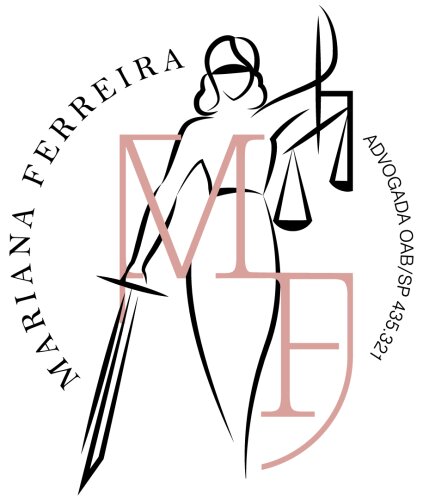Best Natural Resources Lawyers in Brazil
Share your needs with us, get contacted by law firms.
Free. Takes 2 min.
Or refine your search by selecting a city:
List of the best lawyers in Brazil
About Natural Resources Law in Brazil
Brazil is one of the most resource-rich countries in the world, boasting a vast array of natural resources, including the Amazon rainforest, mineral reserves, and extensive agricultural lands. Natural Resources Law in Brazil involves regulations regarding the use, management, and conservation of these resources. The legal framework is primarily designed to balance economic development with environmental protection, encompassing a wide range of sectors such as forestry, mining, water resources, and biodiversity conservation. It is enforced through a combination of federal, state, and municipal laws, underpinned by principles outlined in the Brazilian Constitution.
Why You May Need a Lawyer
Navigating the complexities of Natural Resources Law in Brazil can be challenging. Individuals and businesses might require legal assistance in several situations, such as:
- Obtaining permits and licenses for exploiting natural resources.
- Ensuring compliance with environmental regulations to avoid fines and penalties.
- Negotiating land use and mining rights.
- Resolving disputes between different stakeholders, such as government agencies, local communities, and private companies.
- Engaging in Environmental, Social, and Governance (ESG) initiatives or litigation.
- Understanding rights related to indigenous lands and conservation areas.
Local Laws Overview
Brazil’s local laws concerning natural resources are influenced by various legal instruments:
- The Federal Constitution: It provides the overarching legal framework for environmental protection and the sustainable use of natural resources.
- The Brazilian Forest Code: Regulates deforestation, land use, and preservation of natural vegetation.
- National Water Resources Policy: Governs the sustainable use and management of water resources.
- Mineral Code: Manages mining activities and rights related to mineral resource exploitation.
- Environmental Crimes Law: Establishes penalties for activities that cause environmental harm.
Each of these laws is administered by dedicated institutions, such as the Brazilian Institute of Environment and Renewable Natural Resources (IBAMA) and the National Department of Mineral Production (DNPM).
Frequently Asked Questions
What is the role of IBAMA in managing Brazil’s natural resources?
IBAMA is the main environmental agency responsible for implementing governmental policies on environmental preservation, controlling logging activities, issuing fines for environmental infractions, and ensuring compliance with environmental laws.
Do I need a permit for mining activities in Brazil?
Yes, mining activities in Brazil require authorization, permits, and licenses from various governmental bodies, including the National Agency of Mining. Legal guidance can assist in navigating the permitting process.
How is land ownership regulated in relation to natural resources?
Land ownership is distinct from the rights to exploit natural resources. Resource extraction needs specific legal permissions, even if the land is privately owned.
Can local communities influence natural resource projects?
Yes, local communities, especially indigenous groups, have legally recognized rights to be consulted about projects affecting their land, which is part of Brazil’s commitment to international environmental accords.
What are the penalties for illegal deforestation in Brazil?
Penalties can include hefty fines, criminal charges, and demands for restitution or reforestation, reflecting the severity of such environmental crimes under Brazilian law.
Are there any special considerations for businesses investing in Brazil’s natural resources?
Foreign and domestic businesses must consider environmental regulations, potential impacts on local communities and indigenous rights, and the legal procedures to obtain and maintain their operational licenses.
How does Brazil handle water resources management?
Brazil’s water resources are managed through a combination of federal laws and local watershed management committees, ensuring sustainable use and equitable distribution of water.
What legislative changes can impact natural resources management?
Legislative changes occur frequently, often influenced by political shifts or international environmental commitments. It’s essential for stakeholders to stay informed on legislative trends and potential impacts.
How is environmental impact assessed in resource projects?
Environmental Impact Assessments (EIAs) are mandated for significant natural resource projects, requiring detailed studies and public consultations before licenses can be granted.
What rights do indigenous populations have concerning natural resources?
Indigenous peoples have constitutional rights ensuring the protection of their lands, which include rights to natural resources. These rights are recognized and protected by federal law, requiring legal processes for stakeholders who wish to use these lands.
Additional Resources
Here are some helpful resources for those needing legal advice in natural resources in Brazil:
- Brazilian Institute of Environment and Renewable Natural Resources (IBAMA)
- National Indian Foundation (FUNAI) for issues relating to indigenous rights.
- National Agency of Mining for mining regulations and permits.
- Environmental NGOs, such as WWF-Brazil, which provide insights into environmental policies and advocacy.
Next Steps
If you find yourself in need of legal assistance regarding natural resources in Brazil, consider the following steps:
1. Identify your specific legal needs by determining the issues you face concerning natural resource use or management.
2. Seek legal advice from a lawyer specializing in environmental or natural resources law in Brazil. They can provide expertise on local and federal regulations.
3. Gather all necessary documents and information regarding your situation, such as contracts, permits, or environmental assessments, to facilitate effective legal consultation.
4. Utilize the additional resources mentioned for further guidance and up-to-date information on legislative changes.
5. If needed, consult with local experts, such as environmental consultants or community leaders, for insights specific to your location or project.
Lawzana helps you find the best lawyers and law firms in Brazil through a curated and pre-screened list of qualified legal professionals. Our platform offers rankings and detailed profiles of attorneys and law firms, allowing you to compare based on practice areas, including Natural Resources, experience, and client feedback.
Each profile includes a description of the firm's areas of practice, client reviews, team members and partners, year of establishment, spoken languages, office locations, contact information, social media presence, and any published articles or resources. Most firms on our platform speak English and are experienced in both local and international legal matters.
Get a quote from top-rated law firms in Brazil — quickly, securely, and without unnecessary hassle.
Disclaimer:
The information provided on this page is for general informational purposes only and does not constitute legal advice. While we strive to ensure the accuracy and relevance of the content, legal information may change over time, and interpretations of the law can vary. You should always consult with a qualified legal professional for advice specific to your situation.
We disclaim all liability for actions taken or not taken based on the content of this page. If you believe any information is incorrect or outdated, please contact us, and we will review and update it where appropriate.
Browse natural resources law firms by city in Brazil
Refine your search by selecting a city.
















